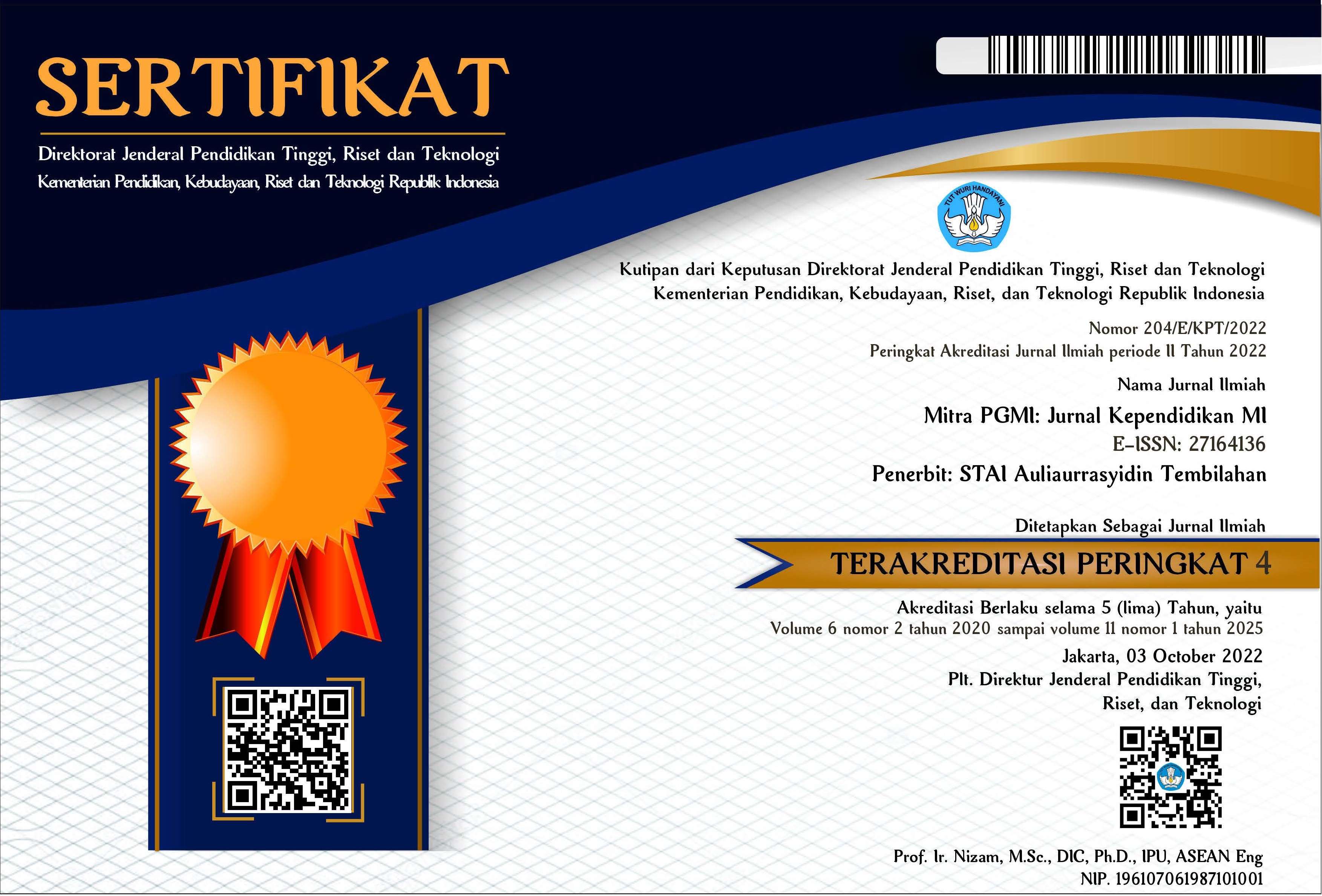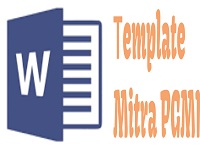Penerapan Model Concept Sentence untuk Meningkatkan Keterampilan Menulis Karangan Narasi Siswa
DOI:
https://doi.org/10.46963/mpgmi.v7i1.180Keywords:
Concept sentence, learning outcomes, narrative essayAbstract
This research was motivated by a lack of students' vocabularies so that they have difficulty narrating ideas into their writing. Students also often repeated the same words and used the local language. The purpose of this study was to determine students' narrative essay writing skills before the use of the concept sentence model, as well as student's learning activities using the concept sentence model at MI Al-Khoiriyyah III Garut Regency. This research was a Classroom Action Research consisted of two cycles. The results showed the activities of students before the concept sentence model was still lacking (43.04%), and the average of learning outcomes was only (48.69). The use of the concept sentence model run according to its stages, the activities, and students' learning outcomes have increased in every cycle. In the first cycle, the students' activities reached 66.85% and then increased in the second cycle by 78.81%. While students' learning outcomes in the first cycle of action I reached 62.82 then increased in action II by 69.35. As for the second cycle of action I students' learning outcomes reached 75, and for the action II reached 82.61 by very good criteria.
Downloads
References
Astuti, D. (2015). Efektivitas pendekatan saintifik terhadap keterampilan menulis karangan narasi di Kelas IV SD IV Jomblangan Bantul. Jurnal Pendidikan Guru Sekolah Dasar, 4(3). Retrieved from http://journal.student.uny.ac.id/ojs/index.php/pgsd/article/view/431
Isjoni. (2010). Cooverative Learning Efektivitas Pembelajaran Kelompok. Bandung: Alfabeta.
Kurniasih, & Berlin. (2016). Ragam Pengembangan Model Pembelajaran. Kata Pena.
Kustawan, D. (2016). Pembelajaran yang Ramah (Merancang Pembelajaran Aktif, Inovatif, Kreatif, Efektif dan Menyenangkan di Sekolah Ramah Anak. Jakarta Timur: Pt Luxima Metro Media.
Purwanto, N. (2009). Prinsip-prinsip dan Teknik Evaluasi Pengajaran. Bandung: Remaja Rosdakarya.
Purwanto, N. (2008). Prinsip-Prinsip dan Teknik Evaluasi Pengajaran. Bandung: PT Remaja Rosdakarya.
Salahudin, A. (2015). Penelitian Tindakan Kelas. Bandung: Pustaka Setia.
Syah, M. (2010). Psikologi Pendidikan. Bandung: PT Remaja Rosdakarya.
Tarigan, G. H. (2013). Menulis Sebagai Suatu Keterampilan Berbahasa. Bandung: CV. Angkasa.
Zainurrahman. (2013). Menulis dari Teori Hingga Praktik. Bandung: Alfabeta.
Downloads
Published
Issue
Section
License
Copyright (c) 2021 Shofia Salsabila, Asis Saefuddin, Heri Hidayat

This work is licensed under a Creative Commons Attribution-ShareAlike 4.0 International License.
Authors who publish with this journal agree to the following terms:
1. Copyright on any article is retained by the author(s).
2. The author grants the journal, right of first publication with the work simultaneously licensed under a Creative Commons Attribution shareAlike 4.0 International License that allows others to share the work with an acknowledgment of the work’s authorship and initial publication in this journal.
3. Authors are able to enter into separate, additional contractual arrangements for the non-exclusive distribution of the journal’s published version of the work (e.g., post it to an institutional repository or publish it in a book), with an acknowledgment of its initial publication in this journal.
4. Authors are permitted and encouraged to post their work online (e.g., in institutional repositories or on their website) prior to and during the submission process, as it can lead to productive exchanges, as well as earlier and greater citation of published work.
5. The article and any associated published material is distributed under the Creative Commons Attribution-ShareAlike 4.0 International License








2.png)


